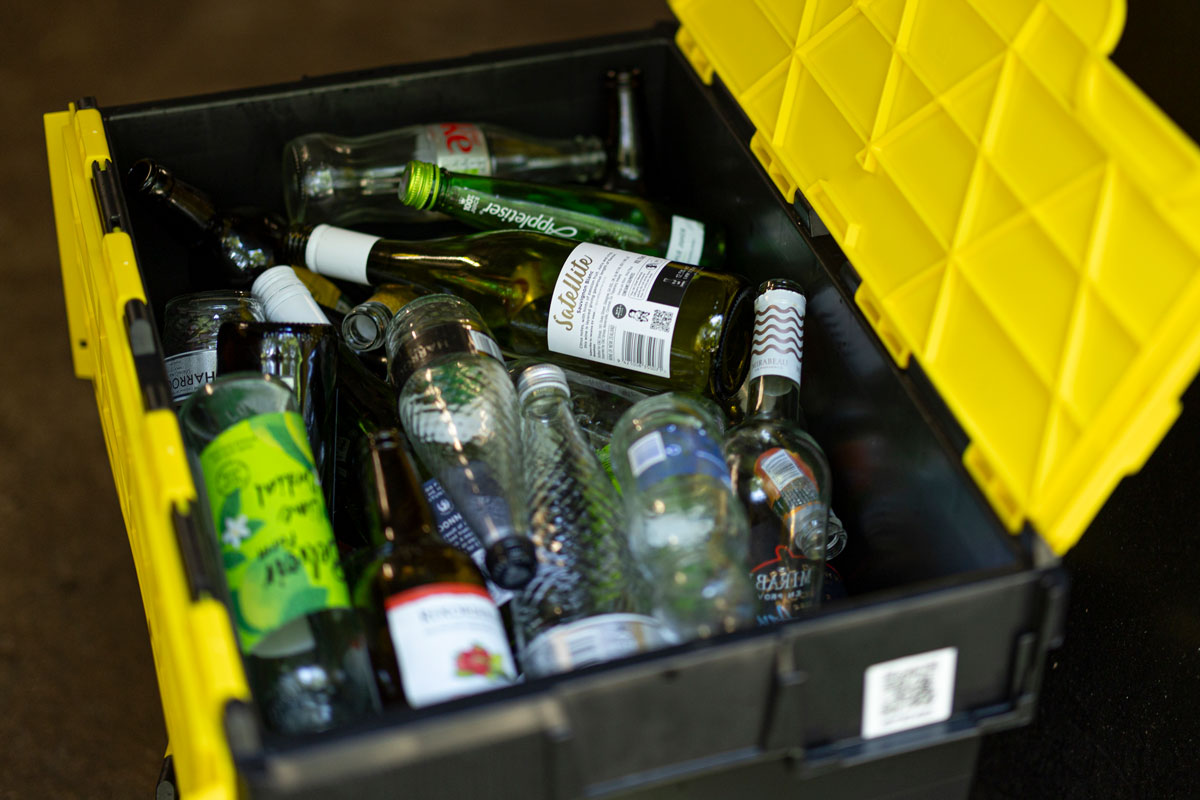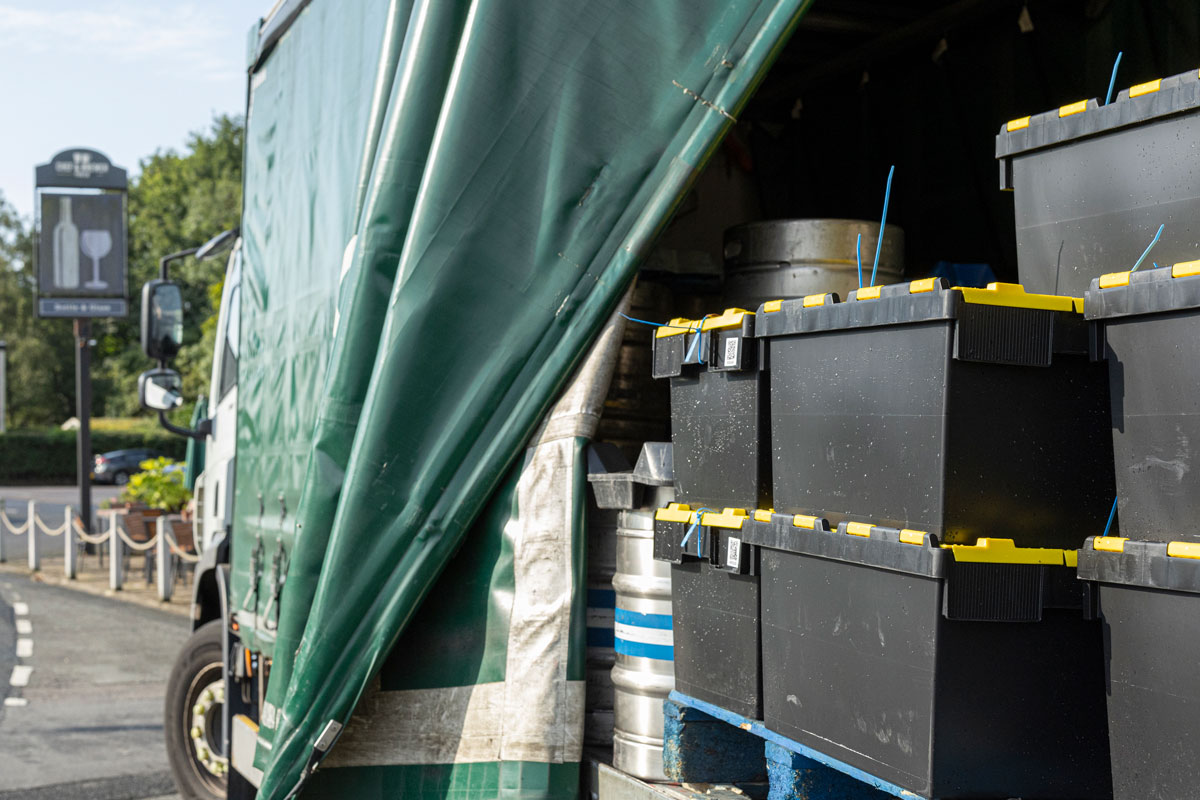 Pub company and brewer Greene King is trialling a scheme where glass bottles sold in some of its pubs are being collected, cleaned and returned to drinks producers for refilling.
Pub company and brewer Greene King is trialling a scheme where glass bottles sold in some of its pubs are being collected, cleaned and returned to drinks producers for refilling.
The refillable bottle initiative, which encompasses beer, cider, spirits, wine and soft drinks bottles, is being trialled in 22 pubs across the north-west of England, where previously glass bottles would have been recycled.
Enabling this experiment is ‘Again’, a returnable bottle infrastructure start-up business.
Used glass bottles are collected from the pubs as part of Greene King’s existing delivery and collection transport system, and are then sorted and cleaned at Again’s CleanCell facility to make them ready for drinks producers to reuse and refill again.
Under the trial, it is estimated that between 14,000 and 22,000 bottles per week will be collected from the 22 pubs, of which 27% will be reused immediately and 55% will be reused by the end of year, contributing to a reduction in glass waste and carbon emissions from Greene King’s suppliers.

As well as the environmental benefit, it was suggested the scheme will benefit pub teams, customers and neighbours as the system uses a ‘tote bag’ collection method which means there will be no noisy emptying of glass bottle bins.
Greene King’s supply chain director, Vance Fairman-Smith, said: “Our partnership with Again shows how we can tap into emerging business’s innovative ways to help us and our suppliers reduce waste.
“Every glass bottle we can reuse through collection, then specialist cleaning and refilling, reduces waste and carbon emissions. We will continue to measure the success of this, with potential further roll out.”
Again’s CEO, Matt Kennedy, added: “Every bottle consumed in the hospitality industry should be returnable. Our previous trials have efficiently collected 98% of bottles from pubs.
“With the right technology and partnerships, refilling bottles can be both economical and help to accelerate the industry’s progress towards net zero.”
The refillable glass bottles scheme is part of Greene King’s broader sustainability strategy, which includes varioys initiatives aimed at reducing the company’s environmental footprint, with the goal for the company to be net zero by 2040.




















